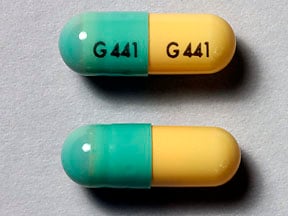
Dantrolene Coupons & Savings Card – Discount Prices from $25.91
Generic for: Dantrium
My prescription
Edit
25MG, Dantrolene (90 Capsules)
Select pharmacy

CVS
$39.99
COUPON PRICE
Walgreens
$25.91
COUPON PRICE
Albertsons
$48.68
COUPON PRICE
Walmart
$62.71
COUPON PRICEDantrolene savings card
Show this card to your pharmacist
Walgreens
$25.91
BIN
ID
PCN
GRP
011867
LH1F90691E
HT
LABH001
Powered by
More prescriptions for spasticity
More prescriptions for spasticity
Dantrolene dosage forms
Dosage Quantity Price from Per unit 25MG 90 Capsules $40.68 $0.45 25MG 1 Capsule $3.10 $3.10 25MG 30 Capsules $20.40 $0.68 25MG 50 Capsules $26.29 $0.53 25MG 100 Capsules $42.28 $0.42 50MG 90 Capsules $41.58 $0.46 50MG 100 Capsules $44.17 $0.44 100MG 90 Capsules $58.15 $0.65 100MG 100 Capsules $62.58 $0.63 100MG 120 Capsules $71.44 $0.59
| Dosage | Quantity | Price from | Per unit |
|---|---|---|---|
| 25MG | 90 Capsules | $40.68 | $0.45 |
| 25MG | 1 Capsule | $3.10 | $3.10 |
| 25MG | 30 Capsules | $20.40 | $0.68 |
| 25MG | 50 Capsules | $26.29 | $0.53 |
| 25MG | 100 Capsules | $42.28 | $0.42 |
| 50MG | 90 Capsules | $41.58 | $0.46 |
| 50MG | 100 Capsules | $44.17 | $0.44 |
| 100MG | 90 Capsules | $58.15 | $0.65 |
| 100MG | 100 Capsules | $62.58 | $0.63 |
| 100MG | 120 Capsules | $71.44 | $0.59 |
Dantrolene Warnings
Dantrolene Safety Information and Warnings
Dantrolene is a medication with potential serious side effects, particularly concerning liver health. It is crucial to be aware of these risks and take necessary precautions during treatment. Below are key safety guidelines to consider:
Liver Health Risks: Dantrolene can lead to severe and possibly life-threatening liver damage. The likelihood of experiencing liver issues is higher if you take high doses (over 400-800 mg per day), are female, over 35 years of age, or are using other medications that can harm the liver. Liver problems are commonly reported within 3 to 12 months of treatment, although they can occur at any time.
Monitoring and Symptoms: Regular liver function tests are recommended to monitor your liver health. Contact your healthcare provider immediately if you notice symptoms such as persistent nausea or vomiting, abdominal pain, dark urine, yellowing of the skin or eyes, or unusual fatigue, as these may indicate liver disease.
Dosage and Treatment Duration: To minimize side effects, adhere strictly to your prescribed dosage and do not increase it or take the medication more frequently or for a longer period than recommended. The lowest effective dose should be used, and if there is no improvement after 45 days of treatment, inform your doctor, as discontinuation may be necessary.
Specific Populations: Special caution is advised for females and individuals over the age of 35, as they may have an increased risk of liver complications while taking this medication.
Contraindications: Individuals with pre-existing liver problems should not use dantrolene. Consult your healthcare provider if you have liver issues before starting this medication.
Always consult your healthcare provider for personalized advice and follow their instructions carefully to ensure safe use of dantrolene.
Dantrolene Side Effects
Common side effects:
- drowsiness
- dizziness
- weakness
- tiredness
- nausea
- diarrhea
- fatigue
- headache
Less common but important to monitor:
- constipation
- upset stomach
- difficulty swallowing
- loss of appetite
- vomiting
- feeling lightheaded
- trouble sleeping
- slurred speech
Serious side effects:
- severe constipation
- changes in vision
- black or tarry stools
- vomit resembling coffee grounds
- mental or mood changes
- trouble swallowing
- urination problems
- seizures
- fast heartbeat
- easy bruising or bleeding
- signs of infection (persistent sore throat or fever)
- symptoms indicating liver problems (stomach bloating, yellowing of the skin or eyes, dark urine)
- very serious allergic reaction (rash, severe dizziness, itching or swelling of the face, tongue, or throat, trouble breathing)
Dantrolene Interactions
Interactions with high risk of serious adverse effects and should be avoided:
- Opioid pain or cough medications (such as codeine, hydrocodone)
- Alcohol
- Marijuana (cannabis)
- Sleep aids (such as zolpidem)
- Anxiety medications (such as alprazolam, lorazepam)
- Other muscle relaxants (such as carisoprodol, cyclobenzaprine)
- Antihistamines (such as cetirizine, diphenhydramine)
Interactions with moderate risk that may require dose adjustment, closer monitoring, or timing changes:
- Amlodipine
- Amobarbital
- Aprobarbital
- Buprenorphine
- Butabarbital
- Butalbital
- Calcium Oxybate
- Chloral Hydrate
- Chlordiazepoxide
- Chlorzoxazone
- Cinnarizine
- Clevidipine
- Clobazam
- Clonazepam
- Clorazepate
- Diazepam
- Diltiazem
- Estazolam
- Ethchlorvynol
- Felodipine
- Flunitrazepam
- Flurazepam
- Halazepam
- Isradipine
- Ketazolam
- Lormetazepam
- Magnesium Oxybate
- Medazepam
- Mephenesin
- Mephobarbital
- Meprobamate
- Metaxalone
- Methadone
- Methocarbamol
- Methohexital
- Methotrexate
- Midazolam
- Nicardipine
- Nifedipine
- Nimodipine
- Nisoldipine
- Nitrazepam
- Oxazepam
- Pentobarbital
- Pexidartinib
- Phenobarbital
- Potassium Oxybate
- Prazepam
- Primidone
- Quazepam
- Secobarbital
- Sodium Oxybate
- Temazepam
- Thiopental
- Triazolam
- Verapamil
